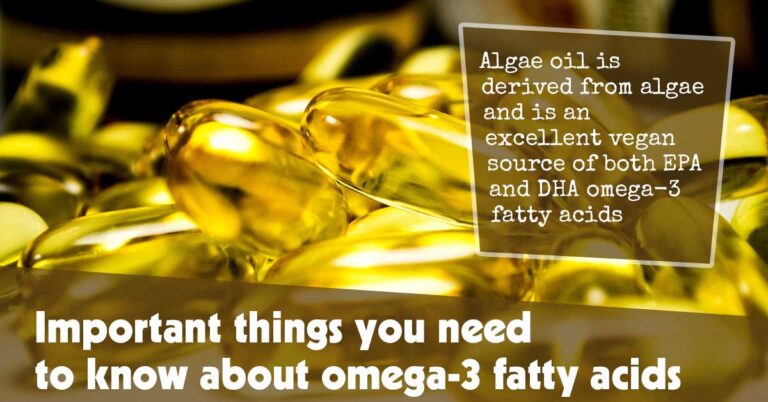Key Facts You Should Know About Omega-3 Fatty Acids
What are Omega-3 Fatty Acids (EFAs)? Essential Fatty Acids, or EFAs, are those fatty acids required by our bodies but which cannot be produced on its own; thus they must come from our diet in order to stay in optimal health. This category also includes Omega-6 Fatty Acids that cannot be produced internally but must instead come through food sources.
Omega-3 fatty acids are healthy fats found in fish, seeds and nuts and are known to offer significant anti-inflammatory benefits. Omega-6 fatty acids can be found in many vegetable oils, eggs, processed foods and fast foods – while they don’t offer such therapeutic advantages.
Omega-6 and omega-3 fatty acids are both vitally important components of a healthy body diet. Too much omega-6 intake, however, may trigger pro-inflammatory responses in your system; therefore it’s crucial that you consume an appropriate quantity.
Omega-3’s can modify cell receptor function within our bodies’ cell membranes to regulate inflammation and blood clotting, as well as binding with receptors to help control genetic function – helping protect us against many illnesses.
There are three main types of omega-3 fatty acids commonly consumed in Western diets, these being: 1. Eicosapentaenoic Acid (EPA), Docosahexaenoic Acid (DHA) and Alpha-linolenic Acid (ALA).
EPA and DHA can be found most commonly in fish. Meanwhile, ALA can often be found in vegetable oils, nuts, flaxseed, and leafy green vegetables.
Omega-3 Fatty Acid Sources
Fish is the go-to source for omega-3s, including tuna, trout and salmon – but vegetarians, vegans or those concerned about potential risks related to eating fatty fish may find alternatives more satisfying. Fish oil supplements also present an option.
Plant foods generally only contain ALA type of omega-3 fatty acid, and while this essential part of our diet, our bodies need to convert ALA into longer chain omega-3s such as EPA and DHA that provide tissue function benefits.
Studies have revealed that only 0.5% of ALA can be converted to DHA and only 5% to EPA;2 However, algae oil offers vegans an effective solution.
What Is Algae Oil? Algae oil is an excellent vegan source of both EPA and DHA omega-3 fatty acids. According to studies, algae oil supplements provide equal or more DHA for red blood cells and plasma than cooked salmon does.
Researchers conducted an experiment comparing DHA availability from algae oil capsules and cooked salmon in 32 healthy men and women between 20-65 years of age.
Over the two-week study, DHA levels rose substantially in both groups’ plasma phospholipids by roughly 80%, with similar increases seen among erythrocytes (25-35% increase). Plasma phospholipid and erythrocyte DHA changes were also similar between groups.
No official dosage guidelines exist for EPA and DHA supplements; however, according to the European Food Safety Authority’s EPA recommendations for adults of 250 mg to 500 mg daily are appropriate.
